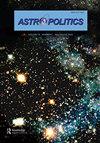消除空间碎片的共同但有区别的责任
Q3 Social Sciences
引用次数: 2
摘要
将可持续性的概念从地球扩展到外层空间是最近的一个发展,但这是必然的,它起源于对地球轨道空间是一种有限资源的理解。外层空间行动者和业务日益增多,导致空间碎片扩散,对空间活动的长期可持续性构成诸多风险。在此背景下,联合国和平利用外层空间委员会2019年通过的《外层空间活动长期可持续性准则》呼吁加强国际合作,有效应对这些挑战。和平利用外空委员会会员国同意需要进行国际合作,但是,尚未商定的是这种合作的性质。以下文章阐述了空间碎片清除责任的概念,并在气候变化法中寻找类比,即共同但有区别的责任原则。通过对空间碎片规制相关文献的梳理,提出了基于国家空间活动与空间碎片清除责任相关性的空间碎片规制体系。会议认识到国际空间法原则和《外层空间活动长期可持续性准则》,讨论了清除空间碎片方面的主要障碍和加强国际合作的建议。本文章由计算机程序翻译,如有差异,请以英文原文为准。
Common but Differentiated Responsibilities for Space Debris Removal
ABSTRACT Expanding the concept of sustainability from Earth to outer space is a recent, yet inevitable development, which originates in the comprehension that the Earth’s orbital space is a finite resource. The growing number of actors and operations in outer space have led to the proliferation of space debris, posing numerous risks to the long-term sustainability of space activities. Against this background, the Guidelines for the Long-term Sustainability of Outer Space Activities adopted by the United Nations Committee on the Peaceful Uses of Outer Space (UNCOPUOS) in 2019 call for enhanced international cooperation, effectively addressing such challenges. UNCOPUOS Member States agreed on the fact that international cooperation is required, however, what has not been agreed upon is the nature of such cooperation. The following paper elaborates on the concept of responsibility for space debris removal, looking for analogies in climate change law, namely the principle of Common But Differentiated Responsibilities (CBDR). Reviewing the literature on space debris regulations, this paper proposes a system based on the correlation between space activities of states and the responsibility for space debris removal. Acknowledging the principles of international space law and the Guidelines for the Long-term Sustainability of Outer Space Activities, key obstacles regarding space debris removal and recommendations strengthening international cooperation are discussed.
求助全文
通过发布文献求助,成功后即可免费获取论文全文。
去求助
来源期刊

Astropolitics
Social Sciences-Political Science and International Relations
CiteScore
1.20
自引率
0.00%
发文量
2
期刊介绍:
Astropolitics: The International Journal of Space Politics and Policy is a peer-reviewed academic journal. The journal is dedicated to policy relevant and interdisciplinary analysis of civil, commercial, military, and intelligence space activities. Committed to the highest editorial standards, Astropolitics is the international journal of choice for the academic, policy-maker and professional in the space community.
 求助内容:
求助内容: 应助结果提醒方式:
应助结果提醒方式:


